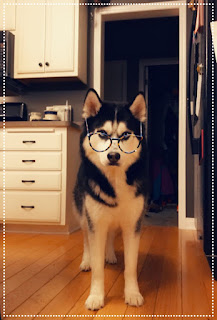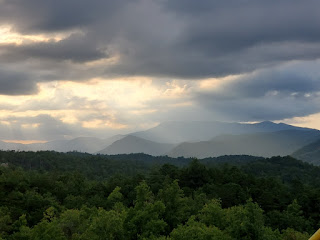This week's topic is Temperature Control: How often does weather, climate, or environmental temperature factor into your stories?
I am an atmospheric writer. I like description that makes me feel something. As a reader, I like to be completely submerged in a world, and that means that all the senses need to be engaged. I also love scene setting. There's nothing worse than trying to read a book that doesn't orient me or suck me into the scene. Setting can also create suspense or nostalgia or evoke fear or happiness, or any other gazillion emotional responses. It's a handy tool when used correctly. So in answer to this week's prompt: Yes, weather absolutely factors into my stories. Sometimes A LOT.
The trilogy I'm working on now is an example. The elements are a character in themselves. Book one, The Witch Collector, finds the hero and heroine trapped in an enchanted, frozen wood. In book two, the weather element will be different, as the characters move south, and book three will change again. This trilogy was
designed around weather. There's a Frost King and a Fire Queen, and gods who reflect much of the area of the world they represent. My characters are forced to weather storms. Literally.
But even if I hadn't designed these books around elemental reasons, you will always get a strong sense of atmosphere via the weather in my writing. Weather can build so much tension, provide conflict, and even mirror characterization. I thought I'd share a few snippets to give you an idea:
Cutting through the village green, I memorize every detail. Frost glistens on the thatch of each cottage and hut, and the last thin breaths of nighttime fires curl out of chimneys. Gardens are dying back, and the wildflowers lining the path to the fields have turned to colorless husks. Soon, snow will pile on the eaves and creep knee-deep over every door, and life here in the vale will grow bitter and difficult.
My attention draws back to the path. As we ride, the autumn cover changes, the dirt and rotting foliage becoming marred by branching veins of crystallized frost. The awaiting cold reaches for us, clawing at the ground to drag us closer.
Ahead, light snow swirls in a coming breeze, depositing a white dusting over everything. With flurries dancing, I almost miss the second flicker of movement along the path’s edge.
Turning a glance over my shoulder, I look more closely as we pass. Snow clings to a thick patch of curled briar vines that have been hacked away, leaving a barbed hole big enough for a person to crawl into if they become desperate enough. Beyond, I think I see the whites of eyes. An animal, perhaps, but I can’t be sure.
The old oil lamp Alexus found at Littledenn hangs from his hand, its wavering flame giving off enough illumination through the amber glass that we travel inside an orb of golden light. Worry for Eastlanders spotting us has long passed, our need of light the larger worry. The rest of the world outside our little bubble is dark but white with cold, the snow and ice that glazes every limb and needle and leaf emitting the faintest eerie glow—a forest made of silver and shadows.













